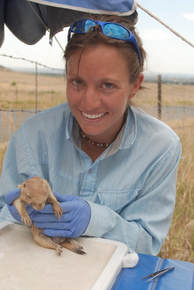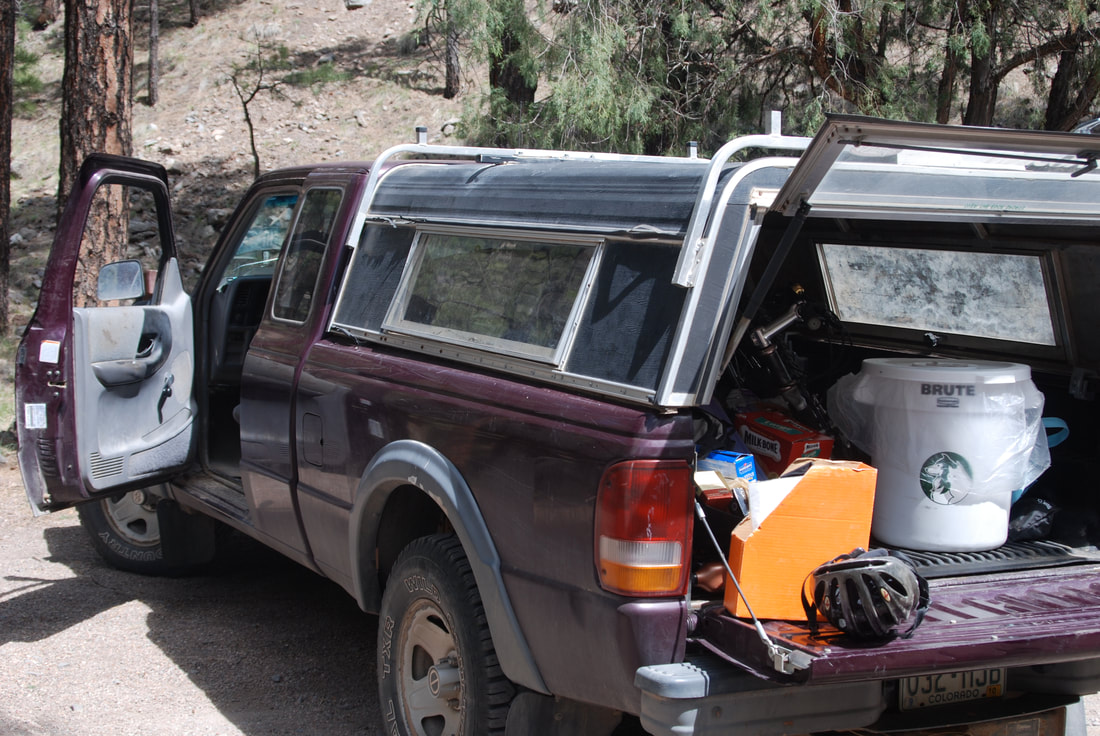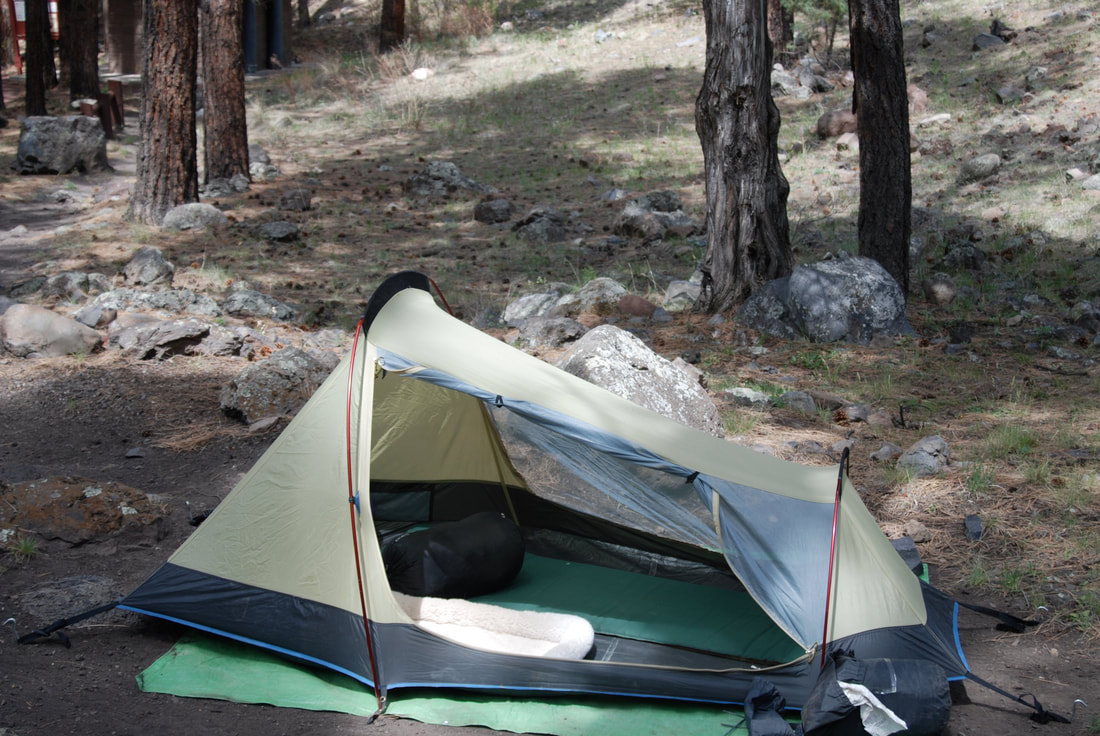|
Field work is supposed to be straightforward, hard work, continue until a job is done, no complications. Just pack up the truck and be prepared, and things will all go smoothly. Right? Let’s take the first site. I began with a paper map (i.e. not super-imposable on other maps) and drew some transect lines across it, placing points a certain distance apart where I wanted to sample. The first challenge: find out whether prairie dogs exist anywhere near my desired sampling locations. Site one (we’ll call it site NM24) should be somewhere west of Truth or Consequences, NM. [an aside– yes, this is the real name of the town. It used to be called Hot Springs, but in 1950 they decided to rename their town after a game show.] I drove around with my oh-so-patient parents for three days straight looking for prairie dogs– we visited T or C, Socorro, Forest Service and BLM land, private land, and an anonymous wildlife refuge (which will remain unnamed because of the fact that despite their friendly, helpful staff, they somehow managed to reintroduce a species of prairie dog that is probably not native to the area). We went on a wild goose chase following promising leads by people who swore there were lots of prairie dogs in some areas (a common statement: “oh yeah, we have a real problem with them in x location.” Problem? Hm. I’ll leave that issue for now), but many people commented, “Oh, they used to be all over up in y location, but I haven’t seen them there in years.” We found lots of empty burrows that probably belonged to ground squirrels (smaller than prairie dogs) or were abandoned, perhaps due to plague. What we did not find was a single living prairie dog– until we visited the I-25 interchange in Socorro. Yep, there they were, about a half dozen of them, inhabiting the one area that is free of human eradication attempts.
Site NM24 has still not been determined. Are there still Gunnison’s prairie dogs in that part of the state? I am told they exist further west by Quemado, but other than the highway prairie dogs and a few along the edge of the highway by the nearby Walmart, I didn’t see any as far east as I-25 (or even 50 kilometers west). Plague has been devastating in the last 100 years, and there have been massive outbreaks in the last 15 years from which prairie dogs have not seemed to recover. Perhaps colonies are so few and so isolated that after plague, there are no nearby animals to recolonize, so local extinctions occur. Discouraged, I thought maybe I had forgotten how to look for prairie dogs and drove back to Boulder, hoping for better luck next weekend. At least I would have my dog (see bed set up next to mine below), my camera, and plenty to read, and I would be in some beautiful places.
8 Comments
2/3/2022 01:59:36
What an exquisite article! Your post is very helpful right now. Thank you for sharing this informative one.
Reply
2/3/2022 02:00:43
This is a very informative—edifying article to all. Thanks a lot! Continue to post!
Reply
4/4/2023 00:45:05
Plastic granules are small particles of plastic that are typically used as raw material in the manufacturing of plastic products. They are made by melting down larger pieces of plastic and then extruding the molten material through small holes to form small, uniform pellets. These pellets can then be molded, shaped, or extruded into a variety of different products. Plastic granules are commonly used in the injection molding and extrusion processes, as they can be easily melted and molded into the desired shape. They are also widely used in the production of plastic films, fibers, and resins.
Reply
4/4/2023 01:16:07
A padded bra is a type of bra that features cups that are lined with padding, typically made from foam or other materials. The padding can be light or heavy, and is designed to add volume and shape to the breasts, as well as provide additional coverage and support.
Reply
4/4/2023 01:47:14
Buy plants online is a great way to get your gardening fix without having to go out and spend hours in the garden. There are plenty of websites that offer plants for sale, and you can easily find the right plant for your home by looking at reviews.
Reply
4/12/2023 14:58:38
"MantriGame" could refer to a variety of things, but it is most likely related to the online gaming industry. It could potentially be the name of a specific video game, gaming platform, or company
Reply
4/13/2023 15:27:44
Brilliant Coaching in Patna refers to coaching centers that provide specialized coaching to students in classes 11th and 12th (also known as +2 or intermediate level). These coaching centers offer comprehensive study materials, expert faculty, and individual attention to help students prepare for their board exams as well as competitive entrance exams like JEE, NEET, etc. The coaching centers in Patna focus on building a strong foundation in the core subjects of Physics, Chemistry, Mathematics, and Biology and help students improve their problem-solving skills and critical thinking abilities.
Reply
4/17/2023 13:19:29
Some of the key benefits of working with a digital marketing agency include access to specialized expertise, improved marketing ROI, and the ability to stay up-to-date with the latest digital marketing trends and best practices.
Reply
Leave a Reply. |
AuthorAn evolutionary biologist with a passion for conservation. Or vice versa. Archives
August 2011
Categories |



 RSS Feed
RSS Feed
